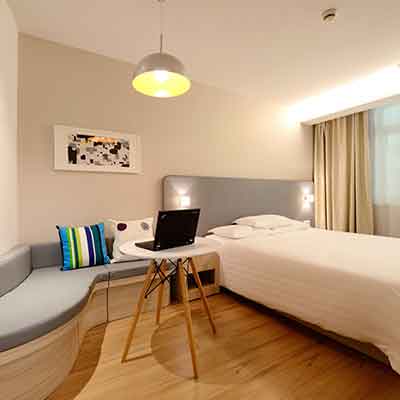The beauty of a Luxury Heating, residential hydronic heating system is that there are very few ‘moving parts’. They consist of a heating source, in this case a boiler, which transfers the heat to your underfloor heating system, a circuit of pipes under your home and a thermostat.
You can fuel your boiler with gas, diesel, wood or solar, but gas boilers are the most convenient, efficient and cost effective because they can be connected to your piped gas. In regional areas, if gas is your preferred option you may need to opt for LPG or bottled gas.
So, with such simplicity and efficiency, what can go wrong?
Well, if you have regular maintenance checks not that much really. Identifying potential boiler problems and repairing them quickly will save you on costly repairs or having to invest in a replacement. But boilers, like practically every other device, will suffer from ageing so you may at some stage need to face the reality that a replacement is a more efficient and cost effective option.
And, like practically every other device, there are safety first considerations. Maintenance will alert you to issues that if ignored, can be damaging to your health.
Low Pressure
Slipping below or above 1.1-1.5 operating pressure is a telltale sign that there’s something wrong. Low boiler pressure can be costly if ignored. A maintenance call should resolve the problem quickly.
Noise coming from your boiler
If you turn on your heating and you hear a screeching sound then your boiler is trying to tell you something. Dirt and debris can build up inside your boiler causing it to overheat. If there’s a build up of dirt and debris, your boiler has to work that much harder to do its job. Your boiler can be cleaned and filters can be installed for additional protection.
Another advantage of gas boilers is that they are easy to install. Most models can be wall mounted in your laundry or garage as long as there is sufficient ventilation. For boilers using alternative fuel sources, installation can be a bit more complex. Regardless of the fuel source, locate your boiler in a clean, dry spot protected from the elements.
The water temperature has cooled
Your hot water should be above 50 degrees celsius to kill the nasty bugs that can fester in water and damage your health.
The choice between boiler repairs and a replacement often come down to cost. But if your boiler is not heating water effectively then you should think carefully about going straight to a replacement. Your health, and that of your family, is too important to take the risk. Your boiler specialist in Sydney will advise you on the best and safest approach.
Rust and leaks
Any form of heating, including wood burning fireplaces and heaters, are capable of producing carbon monoxide. Blocked chimneys, flues and vents can be contributing factors. Needless to say, carbon monoxide is extremely harmful and very hard to detect.
Boilers have airtight seals to keep the air in your boiler separate from the air in your room. Unfortunately, if there is air escaping from your boiler it can be a contributing factor in the production of carbon monoxide rather that carbon dioxide.
Rust means the boiler has lost its airtight seal. If there are signs of rust on your boiler it is important to act immediately.


